
The following is an outline of the successes and obstacles experienced over the course of the four months that we spent working with 11th grade learners at IkamvaYouth-Makhaza Branch. First, it is important to note that we (my project partner Jonathan Wang, the learners, and myself) set out to accomplish a set of tasks that were unique, demanding, both technically and intellectually, and progressive from an educational perspective—such an approach is representative of IkamvaYouth as a whole, be that as organization, an idea, or as a group of wonderful people. As a result, we were bound to have a certain degree of success with our project no matter the obstacles we faced.
Our approach to the project was multifaceted and as such, sought multiple outcomes and objectives. Generally speaking, the focus of the project was to work with Ikamva learners in the testing of flexible, low-cost, open-source mapping techniques, which included hand-held GPS devices, digital cameras, and www.openstreetmap.org, to produce detailed street-level maps of areas around Khayelitsha—namely the shops along Landsdowne Road at R310 and Zwelitsha. More importantly, the focus of the project was to introduce learners to discussions of maps and their uses along with lessons on photographic techniques in order to get students to engage critically with their spatial environments—to begin to think about their neighborhoods as a network of roads and buildings that had relationships with one another, often mediated by concepts such as formality and informality. We also wanted to use the project as a way to introduce new technologies and software, such as Google Earth and Photosynth, to learners to try to provide them with a sense of how cutting-edge technologies are shaping the world. In doing so, we hoped that learners would have their minds opened, if only slightly, to the limitless possibilities that computers and science present us in the modern age.
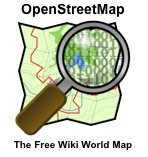
The first objective represents my research as a Visiting Scholar at the University of Cape Town. I am working with the Cape Urban Observatory Project to design and develop mapping techniques capable of efficiently and effectively mapping informal communities. Along with the project in Makhaza, I am working to map areas of Delft as well.
One of the main reasons we reached out to Ikamva to collaborate on this project was the fact that Ikamva learners come from the kinds of neighborhoods that our work seeks to explore. A central object of our work is to further the ends of community-based, participatory mapping as a means to promote community-driven development. As such, it was of great interest to us to try to involve learners in the scientific processes that produces authoritative information about the communities they live in. In terms of getting access to the areas to map and of getting learners involved in doing the actual mapping, we were quite successful. We were able to conduct the kind of tests we needed with equipment we had, and to this end, S’bu and Sinethemba (two of Makhaza Branch’s most dedicated tutors) were absolutely essential. They helped Jonathan and I navigate the neighborhoods of Khayelitsha, as well as capture the attention and imagination of the learners. Needless to say, I learned a great deal from the both of them about life in South Africa, life in the townships, and about the desire to overcome the obstacles to education that are presented a person as a result. For my education on these topics I am certainly indebted.
In terms of engaging with students, which represents the sort of second and third objectives to the project, I think we were pretty successful. Students were certainly interested in the digital cameras and immediately we saw them as a means to incentivize the actual work part of the mapping. We were able to design a couple of lessons that allowed learners to take the cameras home with them and use them to capture imagery of their neighborhoods to help with the map. They were all certainly keen because this also meant that they could use them to take pictures of their friends and families. We were able to project the imagery they took of their neighborhoods to discuss mapping and composition techniques, as well as concepts of mapping as a scientific approach, before going to do our field work. These in class exercises helped students stay engaged with the project material when they weren’t using the cameras or GPS devices in the field. We were also able to provide learners with DvD’s with their pictures and this gave learners a direct by-in to the project above the actual work itself.
Once in the field, things were always a little more challenging because as researchers we have to come in contact with the real world and doing so in Khayelitsha can be particularly difficult. This is where the majority of our obstacles occured. Language and cultural barriers alone between us as project leaders, the learners, and the community writ large presented certain obstacles to communication at times.
A second sort of related issue was the conspicuousness of the cameras while doing field work. They were often a source of confusion for residents of the community because many assumed us to be taking pictures of them to sell. Though we were able to explain to most people what we were doing, an improvement on this project would be to use GPS enabled cell phones that have a camera. That way we could collect image and GPS data while appearing less invasive to the community.
Over the next few months my project partner and I will be developing OpenSettlements.org which will be home to the maps and data we produced here while working at IkamvaYouth. We hope to explore the possibility of a map-based multimedia project using GPS enabled phones sometime next year, so that future learners can add to and build on the base-map data that the 11th graders helped create.
Ryan Bosworth
Visiting Scholar, University of Cape Town

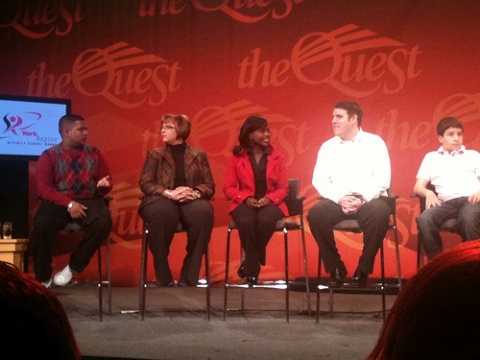
Where do I start, I really do not know… words cannot express enough how happy I am to have been part of the Quest conference, especially being part of the student panel. It was such an amazing experience. The panel consisted of 4 students, and administrators. I also learnt a lot from each and everyone who was part of the panel; the speakers brought so much to think of when I go back home. They were all amazing, I’ve realised that people are doing so many great things all around the world, it’s so encouraging. It motivates me to keep on doing what I’m doing at Ikamva. I met very dedicated individuals, people who are passionate about education, and it was so amazing to see how other countries invest so much in education, something that our country can learn from. In the panel on the pre-quest conference, which was televised on Roger’s TV (Canadian TV channel), I had to talk about everything that our organization is doing, our vision and all the programmes that we have.
[video:http://www.youtube.com/user/ikamvayouth#p/u/4/OC9SdxcjEWI]
Others also talked about the wonderful things they all doing in their schools. The theme of the conference was “Engaging learning in the 21st century” and was organised by the York region district. About 900 people came and so many speakers were respected people all around Toronto and other countries who came to be part of the conference. The 3 day conference went so well, we also got to meet with other South Africans, from the Gauteng legislature, who came to Canada on a study tour. It’s been very amazing being part of the 3 day conference.
[video:http://www.youtube.com/user/ikamvayouth#p/u/3/4oTDQ3j5MbE]
It was the first time I have presented in front of so many people but according to the feedback we got, everything went well. The learning continues if you are a member of Ikamva, one just never stops learning. I remember when I joined in 2004 as a grade 11 learner, I was just a kid who didn’t know what I wanted to do when I passed my matric. I didn’t even think I would go to varsity as I thought only kids that come from rich families can afford university fees. When I joined IY, the tutors made me realise that life has so much to offer and that anyone can go to varsity. I’ve been exposed to a lot of things ever since I joined the organisation: In 2006 I went to Singapore (see our 2006 Annual Report for the story of that trip!) and now Canada. It’s been amazing, being in Canada made me to want to go back home and continue doing what I’m doing. The organisation has been doing so much and so well with such little resources and I know that we will continue making a difference in our learners lives with what we have.
[youtube]PVVJDqnTNnE&feature=mfu_in_order&list=UL[/youtube]
The experience I got from being part of the conference inspired me a lot. It was fantastic. Thank you IY national committee for choosing me to be part of this amazing conference, I can’t wait to come back home and share about everything I have learnt here.
[video:http://www.youtube.com/watch?v=m2dEL-VpkAk&feature=mfu_in_order&list=UL]
[video:http://www.youtube.com/user/ikamvayouth#p/a/u/2/Grb66S6rJu4]

Ikamvanites got an opportunity to participate in one of the greatest conferences in Canada which deals with increasing learner achievement. The conference was packed with a vast amount of information on how we can engage learners in the 21st Century. The conference was well attended (900 people!) and sold out. It had people from the York Region and across Canada as well as other countries – everyone from Government officials to teachers and students. We also got an opportunity to present our great Ikamva Youth to many people at the conference and some South African government officials from South Africa.
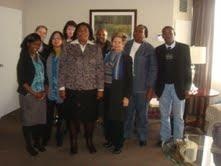
We were welcomed by wonderful people in Toronto: Stephen Rensink and Scott Milne invited us to stay with their awesome families and they gave us a chance to see the beautiful country of Canada. First we went to see one of world’s greatest land marks, Niagara falls, which was an amazing experience. We also went to see the CN tower which is the 4th tallest free-standing structure on land.
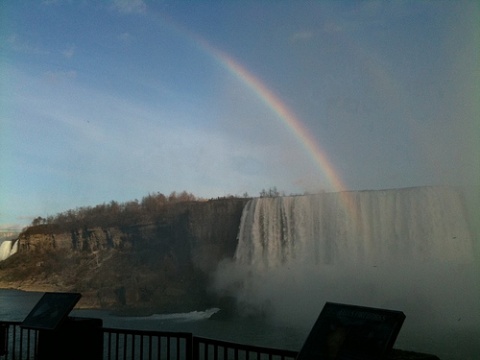
[youtube]7mNNZdUH_Zk[/youtube]
We have had enriching experience learning about Canada, the education system, and got new insights into our own work. Meeting with people from the Gauteng legislature, the Nelson Mandela Children’s Foundation and the York Region District School Board has been great for our organisation. It’s been great sharing our work with people from around the world, and we leave this place filled with new experiences, insights and contacts that will help us to build a better Ikamva.
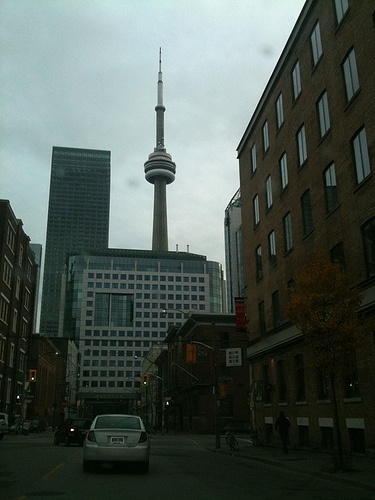
[video:http://www.youtube.com/user/ikamvayouth#p/a/u/2/Grb66S6rJu4]

S’bonelo Cele, aka Blstk Joe Banker is a new volunteer to IkamvaYouth KZN who joined us in the third term of the school year. I met him on my trip to Grahamstown where we were part of a production from the BAT Centre in Durban. Blstk was a regular rapper, as far as I could see. To the extent that when he asked if he could volunteer after I had spoken to him about Ikamva, I thought, “Great another rapper who can only tutor English”.
When he arrived (on time) on the first Saturday, he told me how excited he was because he had not touched High School Physics in some time. Needless to say, I was taken back. A rapper who is good at Physics. Those are very hard to come by.
On his first day, I explained to Blstk how Ikamva works and he took over from there. When I walked into his class I was surprised that the learners were all quiet listening to this tiny figure teaching them about Physics and where it applies in the real world. To this day, the learners ask for Blstk to tutor Physics because he is able to make it relatable to their lives. He encourages learners to see Physics at work in their everyday lives, which makes it easier for them to understand it as a subject. I dare say, even I’m starting to see the work of physics around me… As someone who is not studying and is currently unemployed, he gave his time to teaching the Grade 12s during the teacher strike in September. This made a huge difference in the learners confidence in themselves as they had given up, because the preliminary examinations were close, while their striking teacher had not yet finished teaching them the Physics curriculum.
Blstk has had a huge impact on Ikamva, but volunteering has also changed his outlook on life. According to Blstk, volunteering has shown him that are more important things in life that most people overlook. The opportunity to help others and empower the future generation has proved to be very fulfilling. The idea of helping learners realise their full potential and succeed at school has given him drive and passion which resonates in other aspects of his life. He was able to find meaning for his life and this has enabled him to push himself to achieve more with his rap career. The determination, sense of initiative and hard work ethic which he hopes to impart to learners has seen Blstk take on projects that he thought would be insurmountable a few months ago.
The returns on volunteering are not always tangible, yet sometimes the biggest gains for individuals are the intangible lessons and ways of seeing oneself and the world, that make a difference. Blstk not only encourages his learners to be more and do more, but he has also learned to believe in himself by practising what he preaches.
Sikelelwa is 16 years old. She has always struggled with her home situation; her mother lives in Durban and her father left the family when Siki was a child. She has lived with her aunt in Masi and her cousin who is also in the programme. A feeling of abandonment and not belonging coupled with resentment and anger has had a detrimental affect on her academic work as well as her personal development. However, she continues to show an admirable dedication and determination.
She has participated in IkamvaYouth’s tutoring programme at Masi Library since its inception, is an active member of the Branch Committee, and was one of the learners who completed the Philosophy Course. The impact upon her personal development has been profound; making dramatic progress in her language, communication, listening and academic skills. The Careers Indaba has been a highlight of her winter holidays for the past 2 years; ‘it brought youth together, challenged my confidence and taught me so much to think about – it has shown me the light’. The Indaba also gave her access to activities to satisfy her creative side that is often stifled by her situation.
Siki has a unique personality, which evoked bullying in her younger years and knocked her self-confidence. Through her participation in IkamvaYouth she has learned that she can be her and achieve for herself:
‘I work hard for myself and I want to get to a new height. I’ve learnt that when I want to achieve something I must do it for no one but myself’
Siki is a perfect example of how through IkamvaYouth’s academic and personal support, learners can flourish and believe in their futures. Furthermore it shows how role models are created through the programme. Siki has an aptitude for mathematics and accounting, but her personal goal is to be involved in PR and marketing – a career well suited to her special energy!










 Lloyd Lungu
Lloyd Lungu